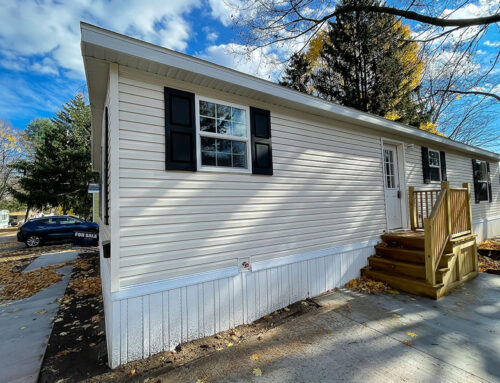My former business partner, Todd, came to me for real estate investing advice after I’d been gone from the company for a few years. I’d enjoyed our partnership and the success of running our Borough Park business together, but found I had a real knack for investing in real estate. When I decided to turn my part-time passion into a full-time career, I knew I was leaving our company in capable hands.
It turns out Todd has recently been doing a bit of real estate investment dabbling himself. Knowing his work ethic, I assumed he’d already seen some success. But he really hadn’t. Eager to get better deals, he planned on attending a foreclosure auction the following afternoon and wanted my input. So I walked him through the process of buying from the foreclosure auction in Brooklyn, what to expect, and why it might not be the best idea.
Buying from the Brooklyn Foreclosure Auction
Investing in foreclosures maintains its appeal to many investors for one simple reason: foreclosed homes tend to be cheap. Typically in very poor condition due to homeowner neglect and vandalism, or from sitting vacant for months (even years) at a time, these houses can be priced at a significant discount. Brooklyn is flush with inventory, making the pursuit of these deals seem like a smart move.
Many of these lender-owned homes can be found through the Kings County Superior Court, where they’re auctioned off to the highest bidder. If you can grab one of these properties at the right price, buying from the foreclosure auction seems like a good move. But it’s better to know what you’re getting into before you start bidding. Let me explain how it works.
Every foreclosure auction follows explicit procedures set forth by the court. In Brooklyn, auctions begin at 2:30 PM sharp in the room designated by the Order of the Court. Prior to the auction date, the court appoints a Referee to preside over the hearing, collect the deposit from the buyer, and expedite contractual paperwork. The Referee is also responsible for announcing any encumbrances that might inhibit title transfer or negatively impact property value. But because these are not always disclosed by the plaintiff (the lender), you should always do your own due diligence.
In order to bid, the court requires that you be fully prepared to buy. You must arrive with deposit in hand–10%, payable in cash, certified check, or bank check–and expect to sign the purchase contract at the end of proceedings. If you win the at the auction, you then have 30 days to pay your purchase price and any closing costs in full to the Referee.
Laid out like this, the rules for bidding at an auction seem fairly easy to understand and abide by. The court is very clear on what it expects from all parties during the auction process. What might not be so obvious are the common pitfalls real estate investors stumble into when bidding and buying at the Brooklyn auction. Here are just a few potential problems that you should be aware of before putting your money on the table:
- Risk. Although buyers are advised to perform due diligence before ever placing a bid, the court expects you to accept the condition of the property as is. But gaining access to conduct a home inspection isn’t mandated by the court and so may not be possible until after close of escrow. If, after winning the property, you find that the cost of repairs doesn’t justify the purchase price, you may just be out of luck–and some serious cash.
- Overspending. Whether or not any liens, deed restrictions, or other encumbrances have been disclosed by the Referee, you will be responsible for the remediation on any property you win. This can be costly and eat into the funds you’ve set aside for the renovation. Even more, if you’re unable to complete the purchase within 30 days, you risk forfeiture of your deposit. Also, should you back out of the deal and the property sells to the next bidder for less than the court’s Final Order and Judgement, you risk having to pay the difference. With these risks in mind, I’m not sure the rewards stack up.
- Wasting time. You’d think with all the rules in place that buying at auctions would be an efficient means to securing foreclosures. But auctions attract a lot of competition, and that competition drives bidding–and, thus, the purchase price–up. Depending on what you’re willing to pay, you may walk away empty-handed. This is especially frustrating when it happens over and over again. Also, auctions can also be canceled, or delayed, by the bank. So all that time you spend combing through the auction offerings can end in a big waste.
Approaching homeowners facing foreclosure is a more practical way to get those good deals under your belt. After all, your chances of buying at a discount are still high–possibly higher than buying at auction. You also have a greater chance of acquiring a property that’s in better shape, thereby saving money on the rehab. And to determine the shape it’s in, you won’t have to rely on the bank’s word. You can see for yourself.
The Intelligent Choice: HomeVestors®
When I explained to Todd that I didn’t have to work so hard to find leads on discounted properties, he was eager to hear more. I told him that as an independently owned and operated HomeVestors® franchisee, distressed homeowners already seeking help with selling their houses call me. I don’t have to go chasing leads or wrangling with the risks of auctions. This means I can focus more on buying and selling houses instead of hanging around the courthouse with the rest of the crowd waiting to bid and, hopefully, win a deal.
The following day, instead of attending a foreclosure auction, Todd made the smart move and called HomeVestors® to learn more about the franchise opportunities available. He’s now on his way to getting the first of many solid investments in his portfolio.
Each franchise office is independently owned and operated.
Contact
"*" indicates required fields





